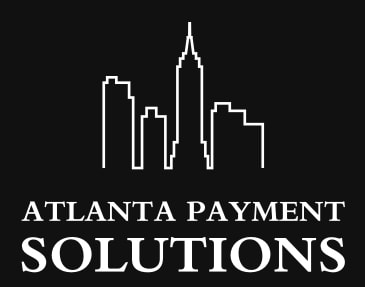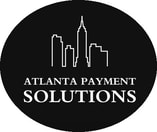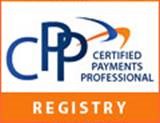Merchant Fees
Fees of a Merchant
On this page we will discuss what “Interchange” is and how it plays a role in the over all cost in what a business will pay to accept credit cards. Also we will define the different parties.
Let start with defining some common terms:
Issuing Bank: The bank or financial institution that issues the card to the end user
Acquirer: is also known as an independent sales organization (ISO). The ISO sale the credit card processing services. With this comes the maintenance of the account and billing for the fees. An ISO has a a sponsoring bank in the back ground.
Processor: A large data center that processes credit card transactions and settles funds to merchants. A processor connects to the merchant on behalf of an acquirer via a gateway or terminal or a Point of Sales system to process credit card payments electronically.
Interchange or Interchange Reimbursement: is a fee — mandated by Visa & MasterCard — that the acquirer pays to the card issuing bank on each sales transaction. Interchange was developed as an income incentive for banks to issue MasterCard and Visa cards. There are over 400 different categories of interchange. A transaction will be accessed an interchange cost based on how the card is processed, when the transaction is settled, the type of business that accepts the credit card, just to name a few variables. Most business will only be effective be a small fraction of interchange categories. A business that accepts and processing credit card in reality does not “pay” interchange. It is paid by the acquirer / processor. Interchange also typically represents the largest portion of a merchant’s total fees. For more on the different categories, links are provided below.
Assessments: while interchange is paid to the card issuers, assessments or some time referred to dues and assessments are paid directly to Visa and MasterCard and typically offset the brands’ costs to operate and regulate the networks. These fees are also passed along in some form to the merchant and generally represent the smallest portion of a merchant’s total fees.
The question is what will it cost a business to accept credit cards? That largely depends on how the pricing is structured and the mark up. For example the two most common are, “Interchange Plus Plan” and “Tier Rate Plan”. In an Interchange Plus arrangement the acquirer passes the interchange cost directly thru to the merchant. Then the acquirer will add some cost or the “plus” part in the “Interchange Plus Plan” This makes it very easy for a business to compare cost from one firm to another.
For a “Tier Rate Plan” is taking the different interchange categories, group and bundle into tiers or different broad buckets. Normally one will see three to four tiers. Each tier is priced high enough to cover the highest interchange fee plus a margin. When one receives a statement in this arrangement there is no mention of interchange cost because it is now becomes a discount fee and transaction cost. Consequently you will pay higher fee for all of the other interchange categories in the tier. On many merchant statements with the “Tier Rate Plan” one will see qualified, mid-qualified and non- qualified. With “Interchange Plus Plan pricing model the cost is transparent because the true cost is shown there by eliminating a higher margin padding that can take place in a bundled or tier plan.
Also worth mentioning is some companies will use a hybrid between a Tier and Interchange Plus and try to disguise to look to be “interchange plus” but, the interchange fees are marked up and are not true interchange cost. This info is disclosed in the application / agreement, if one understands what they are reading. Have fun reading the fine print!
With all this said it is important to also look at the big picture and the overall cost. One needs to pay attention to other cost like the monthly recurring fees, contract terms, etc. More of this can be found on our Home Page. Call or email us today to learn more. If you accept credit cards currently, we will be glad to provide a free no obligation analysis of your current plan.
We have Solutions, Savings & Service at the ready. Give us a call today at 404-999-7874 and start saving.
Let start with defining some common terms:
Issuing Bank: The bank or financial institution that issues the card to the end user
Acquirer: is also known as an independent sales organization (ISO). The ISO sale the credit card processing services. With this comes the maintenance of the account and billing for the fees. An ISO has a a sponsoring bank in the back ground.
Processor: A large data center that processes credit card transactions and settles funds to merchants. A processor connects to the merchant on behalf of an acquirer via a gateway or terminal or a Point of Sales system to process credit card payments electronically.
Interchange or Interchange Reimbursement: is a fee — mandated by Visa & MasterCard — that the acquirer pays to the card issuing bank on each sales transaction. Interchange was developed as an income incentive for banks to issue MasterCard and Visa cards. There are over 400 different categories of interchange. A transaction will be accessed an interchange cost based on how the card is processed, when the transaction is settled, the type of business that accepts the credit card, just to name a few variables. Most business will only be effective be a small fraction of interchange categories. A business that accepts and processing credit card in reality does not “pay” interchange. It is paid by the acquirer / processor. Interchange also typically represents the largest portion of a merchant’s total fees. For more on the different categories, links are provided below.
Assessments: while interchange is paid to the card issuers, assessments or some time referred to dues and assessments are paid directly to Visa and MasterCard and typically offset the brands’ costs to operate and regulate the networks. These fees are also passed along in some form to the merchant and generally represent the smallest portion of a merchant’s total fees.
The question is what will it cost a business to accept credit cards? That largely depends on how the pricing is structured and the mark up. For example the two most common are, “Interchange Plus Plan” and “Tier Rate Plan”. In an Interchange Plus arrangement the acquirer passes the interchange cost directly thru to the merchant. Then the acquirer will add some cost or the “plus” part in the “Interchange Plus Plan” This makes it very easy for a business to compare cost from one firm to another.
For a “Tier Rate Plan” is taking the different interchange categories, group and bundle into tiers or different broad buckets. Normally one will see three to four tiers. Each tier is priced high enough to cover the highest interchange fee plus a margin. When one receives a statement in this arrangement there is no mention of interchange cost because it is now becomes a discount fee and transaction cost. Consequently you will pay higher fee for all of the other interchange categories in the tier. On many merchant statements with the “Tier Rate Plan” one will see qualified, mid-qualified and non- qualified. With “Interchange Plus Plan pricing model the cost is transparent because the true cost is shown there by eliminating a higher margin padding that can take place in a bundled or tier plan.
Also worth mentioning is some companies will use a hybrid between a Tier and Interchange Plus and try to disguise to look to be “interchange plus” but, the interchange fees are marked up and are not true interchange cost. This info is disclosed in the application / agreement, if one understands what they are reading. Have fun reading the fine print!
With all this said it is important to also look at the big picture and the overall cost. One needs to pay attention to other cost like the monthly recurring fees, contract terms, etc. More of this can be found on our Home Page. Call or email us today to learn more. If you accept credit cards currently, we will be glad to provide a free no obligation analysis of your current plan.
We have Solutions, Savings & Service at the ready. Give us a call today at 404-999-7874 and start saving.


